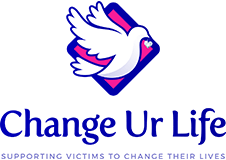Male victims are not alone
Domestic violence against men is happening however we know that it has been underreported. We should not accept violence against men and should accept that it happens to men too.
How Else Can I HelpWe are on a mission to make a change
Feeling angry, scared or sad are normal emotions for all people when dealing with abuse regardless of sex or sexual orientation and they don’t have to “take it” to prove their masculinity.
Although they make up a smaller percentage of callers to The Hotline, there are likely many more men who do not report or seek help for their abuse, for a variety of reasons:
Some of the more common myths may suggest that:
- Men are socialised not to express their feelings or see themselves as victims.
- Pervading beliefs or stereotypes about men being abusers, women being victims.
- The abuse of men is often treated as less serious, or a “joke.”
- Many believe there are no resources or support available for male victims.
Violence must be stopped for good
- Myth #1: The world tells us that men can’t be victims of abuse.
- Myth #2: The media tells us men are just the perpetrators of violence, but never the victims.
- Myth #3: Men are not real men if they can’t take it.
- Myth #4: Men don’t have access to the same resources as women.
Statistics
- Data from Home Office statistical bulletins and the British Crime Survey show that men made up about 40% of domestic violence victims each year between 2004-05 and 2008-09, the last year for which figures are available. In 2006-07 men made up 43.4% of all those who had suffered partner abuse in the previous year, which rose to 45.5% in 2007-08 but fell to 37.7% in 2008-09.
- Similar or slightly larger numbers of men were subjected to severe force in an incident with their partner, according to the same documents. The figure stood at 48.6% in 2006-07, 48.3% the next year and 37.5% in 2008-09, Home Office statistics show.
- The 2008-09 bulletin states: “More than one in four women (28%) and around one in six men (16%) had experienced domestic abuse since the age of 16. These figures are equivalent to an estimated 4.5 million female victims of domestic abuse and 2.6 million male victims.”
- In addition, “6% of women and 4% of men reported having experienced domestic abuse in the past year, equivalent to an estimated one million female victims of domestic abuse and 600,000 male victims”.
- 576,000 men (2.5% men) and 1.2 million (4.8% women) were victims of partner abuse in 2018/19 equating to a ratio of two female victims to every one male victim.
- In 2017/18, 11% of male victims (7.2% women) have considered taking their life due to partner abuse.
- In 2017/18, nearly half of male victims fail to tell anyone they are a victim of domestic abuse (only 51% tell anyone). They are nearly three times less likely to tell anyone than a female victim (49% of men fail to tell anyone as opposed to 19% women). This has worsened since 2015/16 where the figures were 61% for men (88% women).
- In 2018/19 – 16 men (80 women) were killed at the hands of their current or ex-partner.
- In terms of refuges/safe houses, currently, there are 37 organisations with 204 spaces with only 40 of those places are dedicated for men. Many parts of the UK have no or limited places at all – for instance London has no spaces.
- For the year ending March 2019, the Crime Survey for England and Wales (CSEW) estimated that 1.6 million women and 786,000 men aged 16 to 741 years experienced domestic abuse in the last year. This equates to a prevalence rate of approximately 7 in 100 women and 4 in 100 men.
Bedfordshire Domestic Abuse Outreach Support and Live Chat
We have expanded our provision to include support via our Live Chat which is available Monday to Friday 9am-5pm.
In the last year we have received over 160 requests to support male and female victims of Domestic abuse.
The outreach team is available to support victims to the following as an example:
- Access safe housing
- Access financial support
- Report incidents
- Emotional Support
- Support in court




